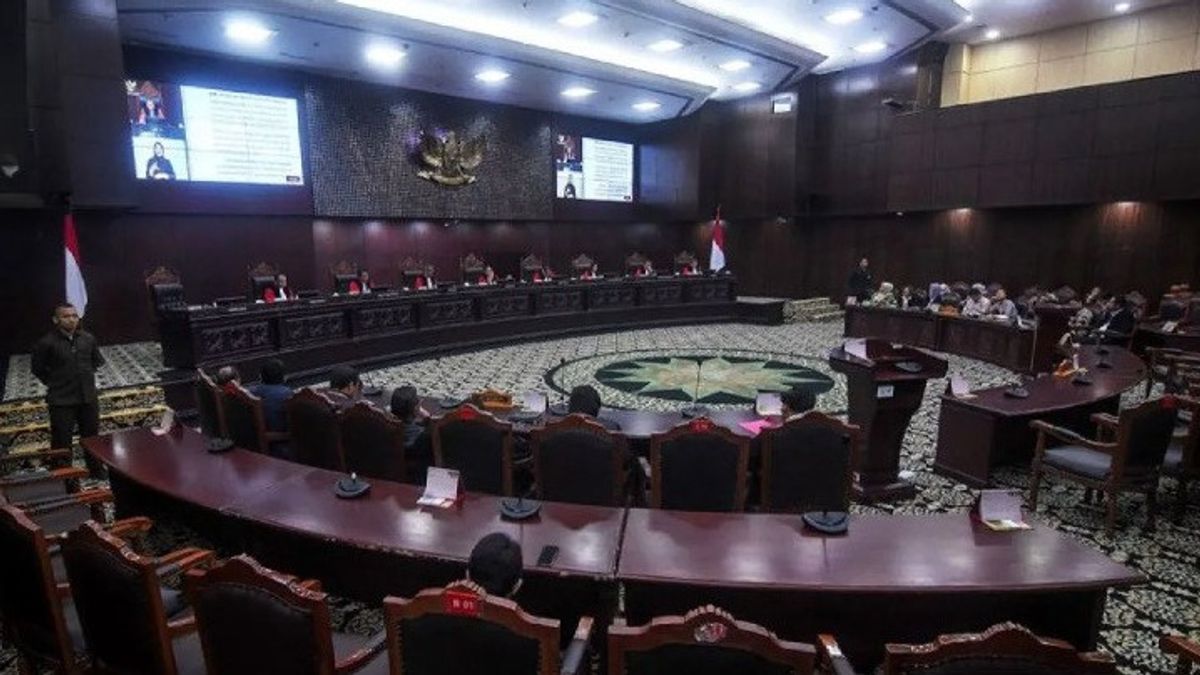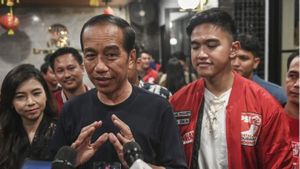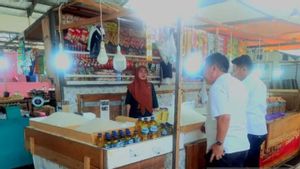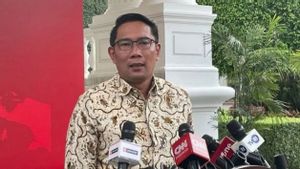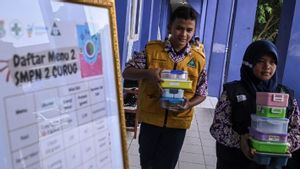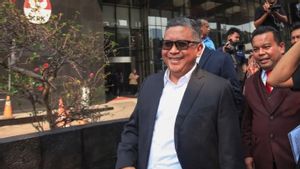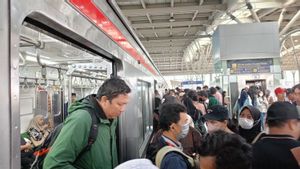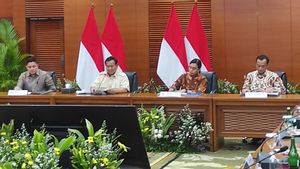The Constitutional Court's (MK) decision granted part of the Association's material lawsuit for the Election and Democracy (Perludem) regarding the parliamentary threshold or parliamentary threshold of four percent of the national legitimate vote received the spotlight.
It is known that at the plenary session on Thursday (29/2/2024) the Constitutional Court granted part of the request for judicial review of Article 414 paragraph (1) of the Election Law proposed by Needdem. In its ruling, the Constitutional Court asked the legislators to rearrange the amount of figures and the percentage of parliamentary thresholds in Law Number 7 of 2017 concerning Elections to be more rational.
The Constitutional Court has decided that the norm of Article 414 paragraph (1) of the Election Law is constitutional as long as it remains valid for the 2024 DPR Election and conditional constitutional to be enforced in the 2029 DPR Election and the next election, as long as there has been a change in the parliamentary threshold by referring to the predetermined requirements.
In the legal consideration read out by Deputy Chief Justice of the Constitutional Court, Saldi Isra, the Constitutional Court did not find a rationality basis in determining the figure or percentage of at least four percent referred to in the article.
Saldi also said that the parliamentary threshold had an impact on the conversion of valid votes, becoming the number of seats in the DPR related to the proportionality of election results.
The parliamentary threshold will take effect in the 2009 elections, whose goal is to reduce the number of political parties that qualify in the DPR. In the 2009 election the parliamentary threshold is 2.5 percent, but the figure continues to rise to 3.5 percent in the 2014 elections and to 4 percent in the 2019 elections. This increase is expected to further screen the number of parties entering Senayan.
However, in its implementation, this parliamentary threshold is considered incapable of fulfilling its goals, namely simplifying the number of parties in parliament. In the 2009 elections, out of 38 political parties participating, only nine qualified in the DPR. Meanwhile, in 2014 as many as 10 political parties who sat in the DPR from the number of participants of 12 parties and lastly in 2019, seven parties failed to make it to Senayan from 16 political parties who fought. The increase in the parliamentary threshold figures in each election edition was apparently not directly proportional to the decline in the number of parties that received seats in parliament.
In addition, the basis for determining the value of the parliamentary threshold is considered not transparent. Generally, the value of the parliamentary threshold is the result of a political agreement which is then outlined in the law.
The existence of this parliamentary threshold also scorched millions of votes because of parties that did not qualify for the DPR. Citing the Constitutional Court records, in the 2009 election the number of votes wasted or unable to be converted into DPR seats reached 19.05 million votes, equivalent to 18% of the total national legitimate votes. Then in the 2014 election, the votes wasted reached 2.96 million votes, equivalent to 2.4% of the total national legitimate votes.
According to the Executive Director of the Indonesia Public Institute (IPI) Karyono Wibowo, the Constitutional Court's decision regarding the parliamentary threshold aims to make the election results proportional. He also straightened out that in the Constitutional Court's decision there was no phrase deleting the parliamentary threshold', as some people suspect.
The Constitutional Court only asked to make a decision that emphasized the principle of proportionality. This means that the Constitutional Court allows the parliamentary threshold to apply in the 2029 election as long as it is calculated on a clear academic and theoretical basis.
"The MK asks legislators to make comprehensive arguments or reasons regarding proportionality so that votes are not wasted, not scorched," Karyono told VOI.
If the parliamentary threshold is completely removed or has a zero percent value in the next election, according to Karyono, it could harm big parties and benefit the new Democratic party from participating in the democratic party.
"But it's not about who will benefit or not, the problem is how to create elections that are fair, free, open, honest, and clean. That in contestation there is competition is natural," Karyono emphasized.
The Constitutional Court's decision so that the parliamentary threshold value is again discussed in the DPR before the 2029 election received different comments from big parties and small parties. PDIP politician Hendrawan Supratikno believes that the 3.5 to 5 percent figure is still relevant, while small parties such as PSI ask that it be reduced from four percent to make it easier to walk to Senayan.
PSI Deputy Chairman of the Board of Trustees Grace Natalie proposed a Threshold faction, namely a special faction for parties whose votes did not reach the percentage. The hope is that no people's votes will be wasted and parties whose votes do not reach a certain percentage will be merged into one faction.
According to Karyono, this difference of opinion occurs because political parties in Indonesia, both big and small parties, are more concerned with power than the interests of the nation, namely realizing a democratic nation.
"Our political parties are the spirit of pragmatic spirit, spirit of power or power-oriented, so they are not based on collective interests for the nation," he said.
Meanwhile, President Director of the Voxpol Center Research and Consulting Pangi Syarwi Chaniago hopes that in the 2029 election the parliamentary threshold will be lowered to a lower limit range of one percent and an upper limit range of two percent, so that people's votes can be converted into seats in the DPR and not wasted.
According to Pangi, the four percent threshold only benefits incumbent parties in parliament, while small parties will be difficult and limp to meet these thresholds.
"The threshold parliamentary threshold boundary barriers new political parties, many votes wasted are not a seat, if you have received 200,000 votes, you must be converted into one seat in the DPR," Pangi said in a statement received by VOI.
SEE ALSO:
"In principle, no people's voices are wasted without being a seat, so that the people will have more representatives in parliament, it will be better and more qualified," added Pangi.
He added that the implementation of four percent figures for parliamentary thresholds is accommodative to small and medium parties and is more aimed at preventing the entry of new parties into parliament. This, according to Pangi, is very different from the motivation of the ideal idea of simplifying parties in parliament and strengthening presidentialism.
The English, Chinese, Japanese, Arabic, and French versions are automatically generated by the AI. So there may still be inaccuracies in translating, please always see Indonesian as our main language. (system supported by DigitalSiber.id)
